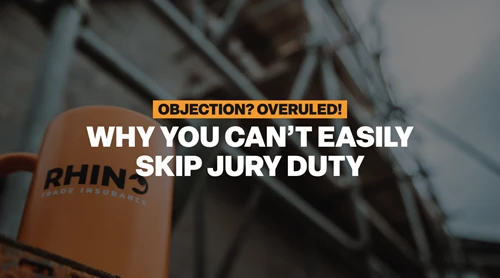Due to its advantages for the environment, cheaper operating costs, and a variety of government initiatives, electric vehicles for business have become more and more popular in recent years.
Of course, many tradesmen find that owning or renting a trustworthy van that allows them to transport all of their tools from point A to point B is essential. Many tradespeople will be debating whether it makes sense to replace their current model because electric vans may have some advantages over conventional vehicles. If this is you, then you've come to the perfect place to get the latest information on electric vehicles.
Take five minutes and read on for a rundown of some of the most important information on the benefits and drawbacks of owning an electric vehicle for your company.
Advantages of Electric Vehicles
Cheaper to run
As fuel peaks and troughs, it is more expensive to fill up with than power at charging stations - which, even on occasion, can actually be free depending on your memberships and lease. That means electric vans are often more affordable than diesel or petrol vehicles.
The Mobility House research indicates that, over a distance of 15,000 km (9321 miles), the petrol-powered Hyundai i30 has energy consumption costs of €1170 (£1,019), as opposed to €662 (£576) for the electric-powered Hyundai IONIQ. Still, there is a lack of information specifically relating to the costs of EVs and electricity. It is, however, logical to assume that electric vehicle owners would benefit from these financial benefits.
Cheaper to maintain
In addition to being less expensive to maintain than vans fueled by petrol or diesel, electric vehicles have fewer moving parts and are easier on their brakes, making them less susceptible to wear and tear.
According to the Mobility House study previously mentioned, a Hyundai i30 owner typically spent around €744 (£647) per year on maintenance and repairs, whereas a Hyundai IONIQ owner only spent €552 (£480).
How do they help the environment?
Governments are encouraging people to switch to electric vehicles (EVs) mostly because vehicles powered by dirty fuels have a terrible impact on our environment.
Electric vehicles (EVs) don't have tailpipes. Therefore, they don't emit any CO2 when driving, in contrast to their gasoline-powered counterparts, who spew enormous volumes of greenhouse gases and pollute the air around us.
One electric vehicle on the road can actually reduce CO2 emissions by an average of 1.5 million grams per year. Giving back to the environment will not only help the planet, but it will also help your company project a socially conscious image that may help you draw in more clients (especially the younger generations who are environmentally aware and slowly getting on the property ladder).
Range and battery life worries
Even though electric vans' driving range keeps getting better, they still can't go as far on one full charge as traditional vans can on a full tank of fuel. Since you will have to stop more frequently, they are not really appropriate for long-distance driving.
Additionally, the claimed efficiency of an electric vehicle is most likely a lot lower in practice. If it says it can go 100 miles between charges, for example, you'll probably only get about 80 miles, and this range can also be affected by what you are carrying (the weight), your driving style, how much you have turned on in the cab (heaters etc.) and weather conditions.
Unfortunately, electric vans require much more time to charge as opposed to those that can be pumped with petrol. While you can enter and exit a petrol station quickly, an 80% charge using a DC rapid charger takes about 40 minutes.
Even worse, most EV owners utilise their home charging stations overnight, while conventional three-pin plugs often take a full day to charge. On top, charging your work vehicles whilst on the go is far less convenient because there are fewer public charging outlets than petrol stations. Although this number is steadily increasing, we still have a way to go before the convenience lever swings the way of electric vehicles. Last but not least, although this is covered by a vehicle's warranty, electric vehicle batteries degrade over time, essentially losing performance - just like your iPhone.
Are there any incentives for EVs?
The government announced in June 2022 that the plug-in grant for low-emission vehicles will end immediately. The money is now being utilised to enhance charging points across the country for electric vehicles.
There are several advantages to owning an electric van or car if you frequently go to urban areas for your trade work:
- Electric vehicle owners in London can save £15 per day by avoiding the congestion charge. (until 24 December 2025)
- Additionally, you won't be required to pay the daily fee of £12.50 for the ultra-low emission zone. (ULEZ)
- What’s more, similar low-emission zones exist in cities around the UK, such as Oxford, Bristol, Bath, Manchester, and Birmingham. There are also proposals for more towns and cities to be added to the scheme, so having an electric van for your work may save you a fair bit of money in these places.
Remember, though, the data isn't perfect yet, so it's not easy to argue a clear line is divided between electric and gas-powered vehicles. Proving that incentives and cheaper costs will save you bundles of money isn't possible with the volatility in things like petrol and diesel and the rising costs of power.
Ultimately the decision is for your business and what you see coming down the line in the future. All the signs lead towards gas and hybrids being made obsolete, as you can read in our blog here. Just remember, electric cars and vans increase in price depending on the range you require in your vehicle.
Charging infrastructure for electric tradesman vans
The price and accessibility of charging stations are two factors that contribute to some business owners' uncertainty about whether to purchase an electric van or car.
As briefly mentioned above, the government has responded by introducing the Electric Vehicle Homecharge Scheme, which provides up to 75% of the cost of installing electric vehicle charging stations at people's homes or properties.
Another option is the Workplace Charging Scheme, which provides vouchers to help employers offset the cost of purchasing and installing an electric vehicle charging station.
Again, all the signs point towards a fundamental shift towards electric vehicles. What may seem like a slow uptake will ultimately swing into action at some point in the future when the market is ready to use electric vehicles. As more and more charging points become available, ranges increase, charging times get better, and prices of vehicles fall, we shall see a major shift towards this new way of transport for our businesses.
Why choose Rhino Trade Insurance?
Despite some early setbacks in the industry, the advantages of electric vans for the environment are difficult to ignore. Any businesses that have spare cash to invest in their brand and environmental footprint should consider buying one, especially because the long-term costs aren't all that different from vans powered by fuel. It's not hard to understand why more and more people and businesses are purchasing electric vans once you have experienced one. They are lovely to drive and generally receive rave reviews from most car experts.
Make sure to conduct your research and evaluate any potential long-term effects on your business before making any decisions.
Contact the staff at Rhino Trade Insurance if you're interested in learning more about your insurance coverage options. Visit this page for more information and get a quick quote. Alternatively, call our fantastic UK team at 0116 243 7904.




